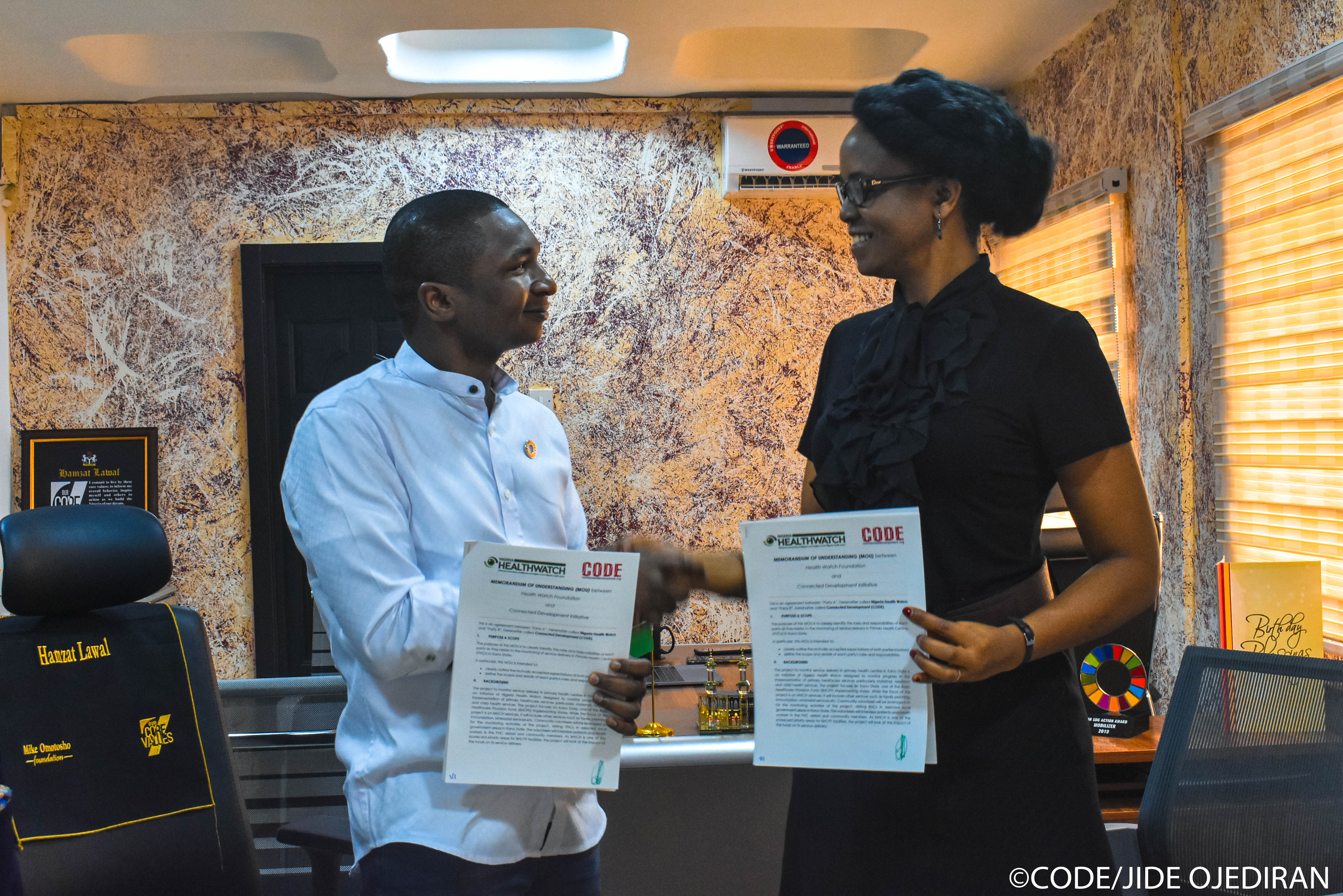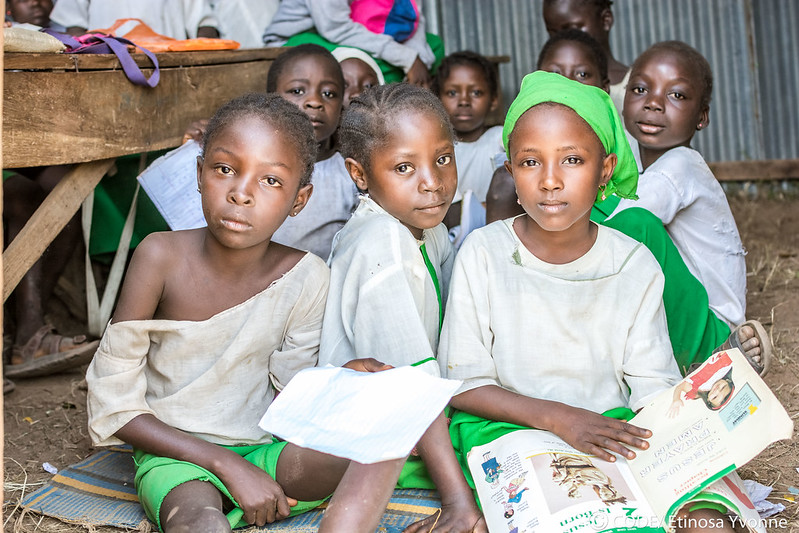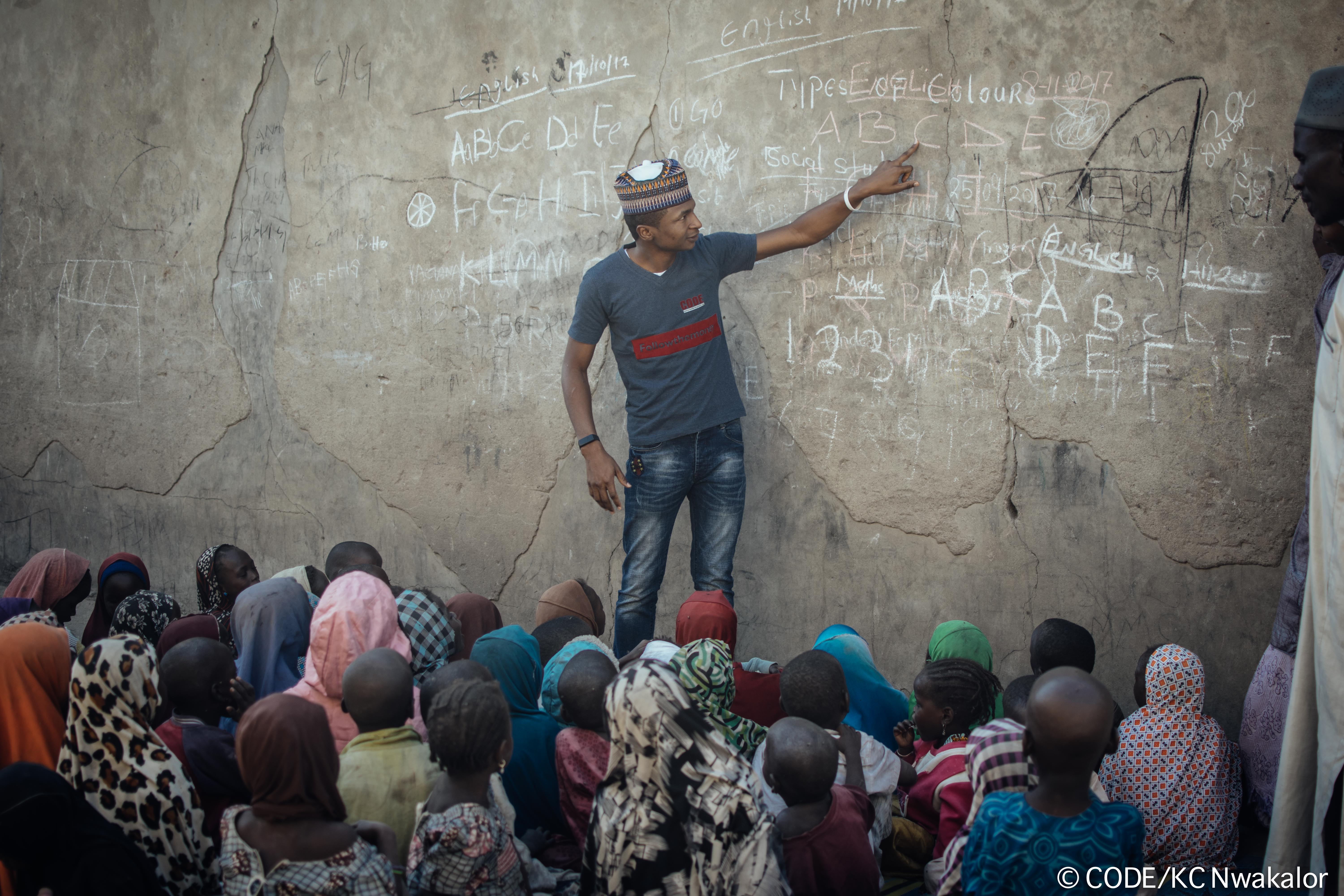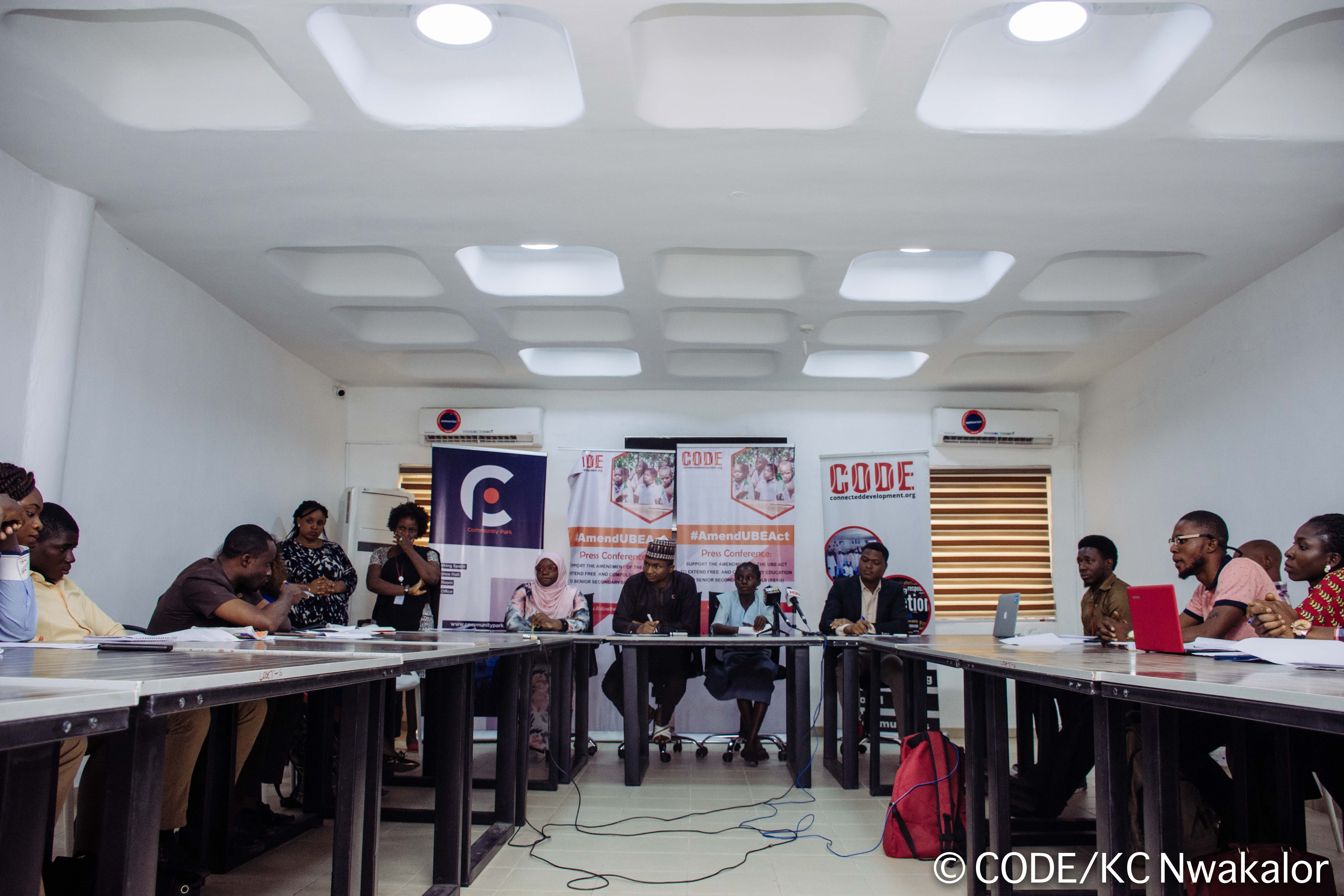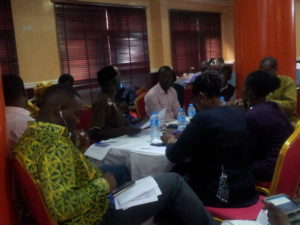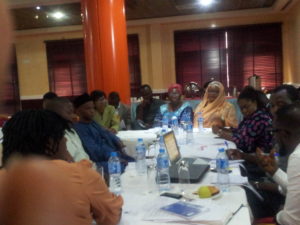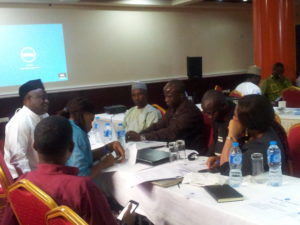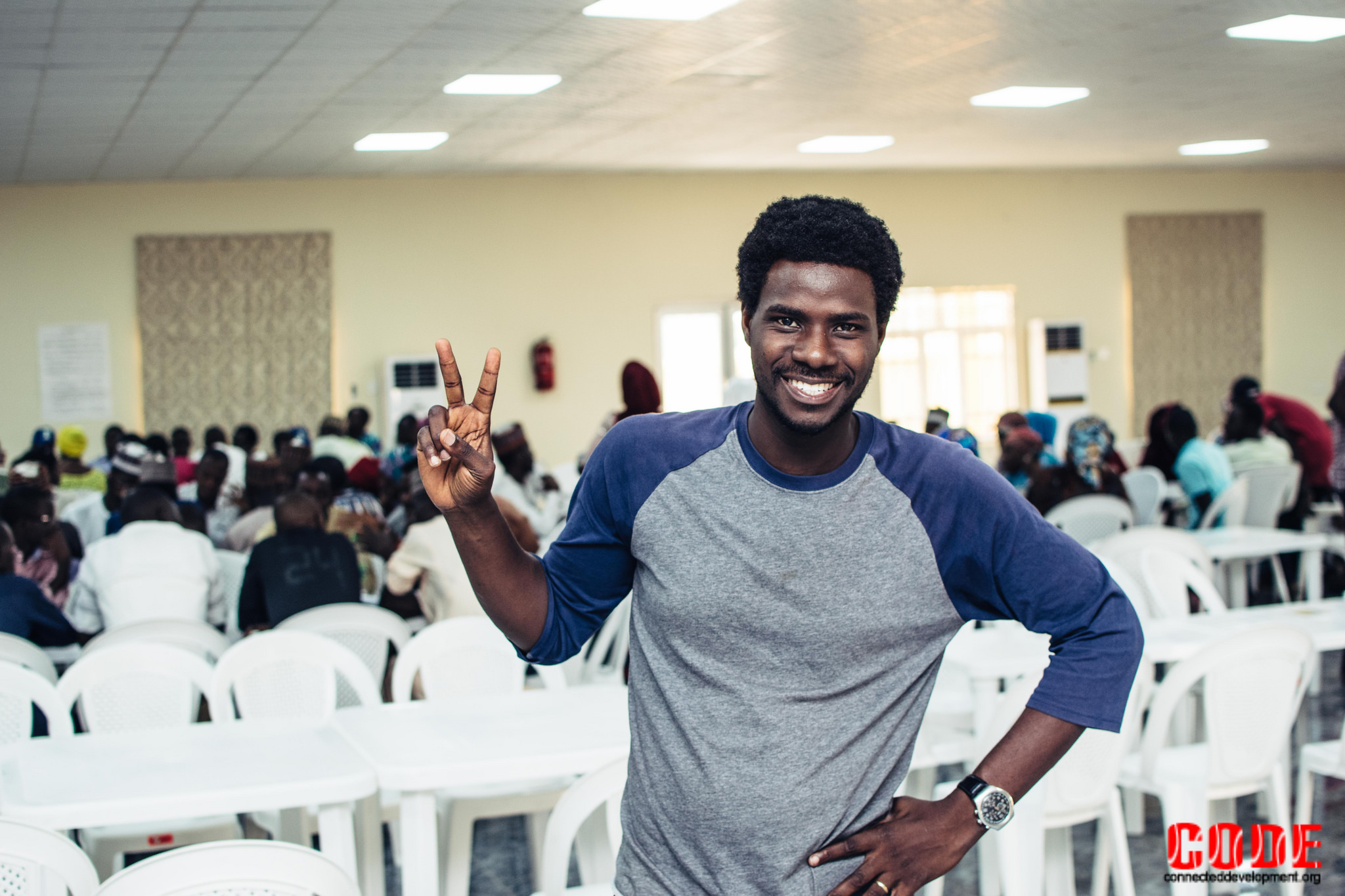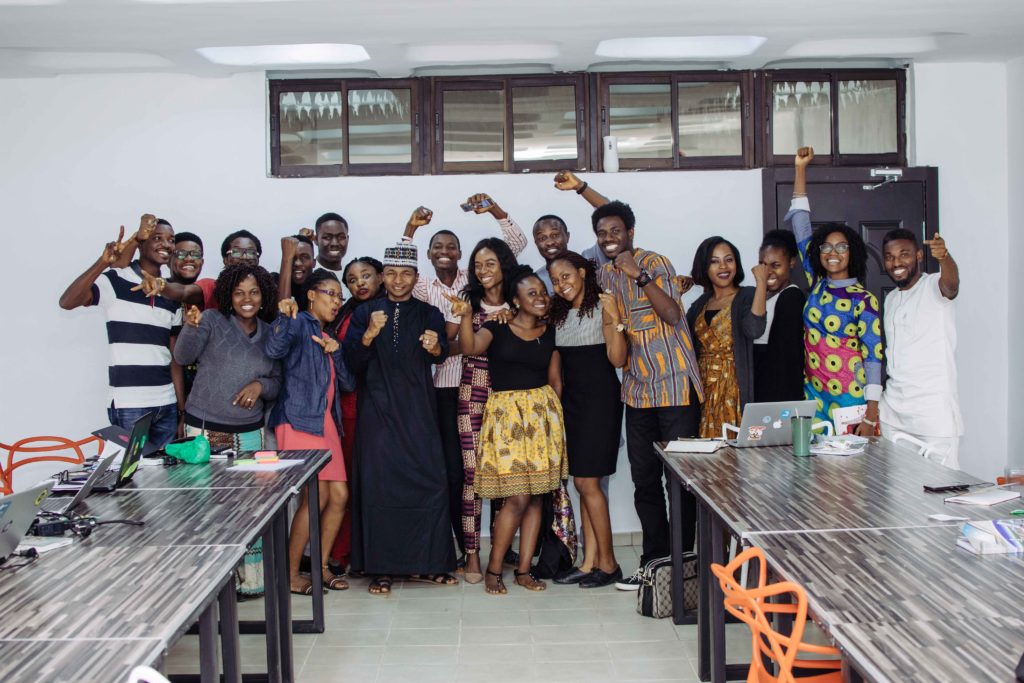NHW, CODE Launch Report on Assessment of 49 PHCs in Kano State
Nigeria Health Watch and Connected Development launched a report on primary health care to advocate for improvements and greater accountability in the primary health care system in Nigeria.
In order to show primary health care provision at the State level, the report looked at primary health care service provision in Kano State as a case study, evaluating whether the state’s primary health care provision is in line with the minimum standards of primary health care as outlined by the Federal Ministry of Health. The monitoring of service delivery in Primary Healthcare Centres was designed to monitor progress in the implementation of primary health care services particularly maternal, newborn and child health services.
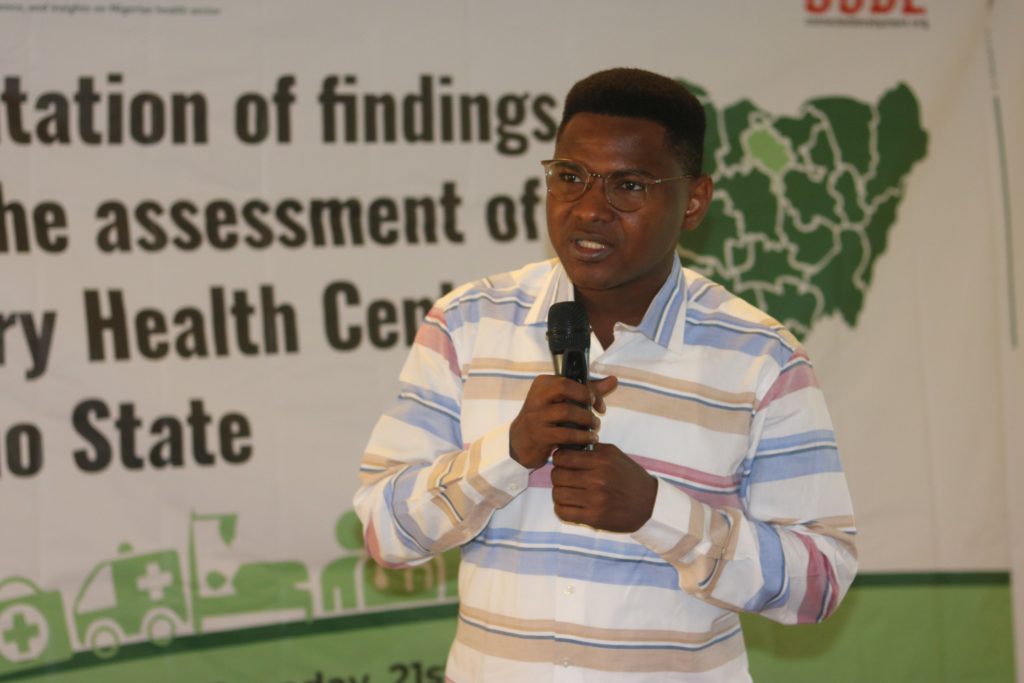
The assessment in 49 primary health centres (PHCs) across Local Government Areas (LGA) in Kano State was carried out using both qualitative and quantitative methods.
Speaking at the launch in Kano, Director of Programmes at Nigeria Health Watch, Vivianne Ihekweazu said, “Results reveal that all the PHCs assessed seem to lack some component of the basic requirements as outlined by the NPHCDA minimum standards for PHCs. Based on the minimum standards, some basic infrastructure and human resource are expected to be found in a PHC facility. This is essential in order to facilitate delivery of timely and efficient services to healthcare users.”
Receiving the report, the Executive Secretary of the Kano State Primary Health Care Management Board, Dr. Tijjani Hussaini said, “…
According to CODE’s Chief Executive, Hamzat Lawal, the report has provided greater clarity on the standards of PHCs in Kano State. Now is the time for Kano State NPHCDA and other statutory regulators to step up and put in place sustainable measures to strengthen the healthcare system. I must add that the gaps identified in this report are not unique to Kano alone. NPHCDA and the Ministry of Health should prioritize provision of the basic requirement that will ensure healthy lives and promote wellbeing for all.
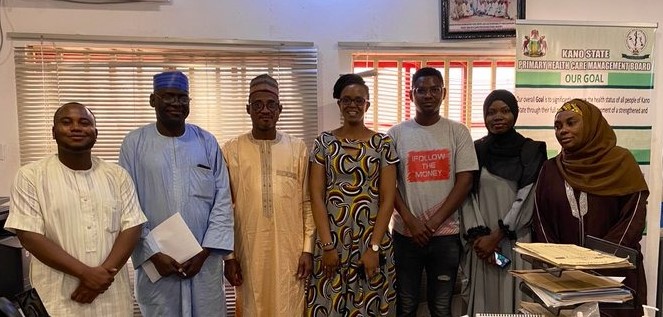
From the report, it is clear that there are gaps in service delivery and adherence to the minimum standards for primary health care. The resultant effect is poor health seeking behaviour among patients in the State. The consensus at the end of the launch of the report was that the local health authorities need to re-examine the services provided at PHCs and re-equip them with necessary infrastructure and human resource to enhance their service quality and readiness, in order to achieve universal health coverage (UHC).
Other states in Nigeria should carry out a similar assessment of service delivery in their local primary healthcare centres.
About Nigeria Health Watch
Nigeria Health Watch is a not-for-profit organization that aims to advocate for the health of Nigerians, strengthen the capacity of health sector organisations, enlighten Nigerians on good health habits and practices and engage and support government and other partners to formulate and implement positive and effective health policies. Its dual strengths in health and communication enables it to provide solutions for communications and advocacy in the health sector.
About Connected Development
Connected Development [CODE] is a non-governmental organization, whose mission is to improve access to information and empower local communities in Africa. Its initiative, Follow The Money, advocates and tracks government/international aid spending in health, WASH, and education across grassroots and communities to promote and ensure open government and service delivery.
